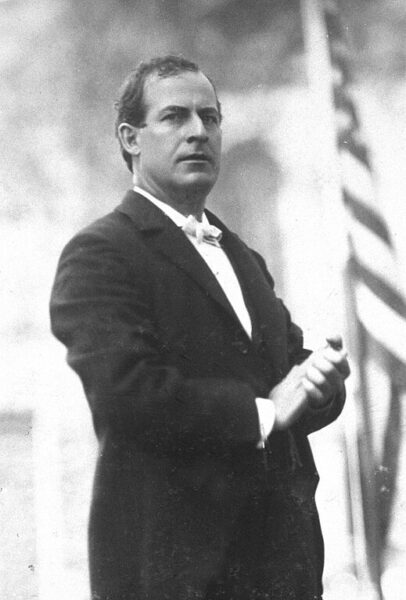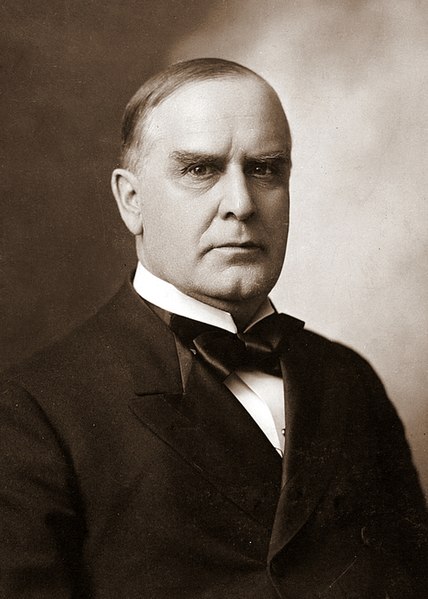Caldwell’s account is indispensable — especially for liberals — in understanding how those resentments grew until they finally exploded under Barack Obama. The Tea Party was the first real movement of this sort; the collapse of immigration reform proposals under George W. Bush and then under Obama revealed how powerful these feelings were; Trump managed to wrap them all up into a populist fervor that was distributed geographically enough to give him a win in the Electoral College. Liberals, increasingly ensconced in their own economic and social bubble, were shocked.
Caldwell’s book is far too nuanced and expansive to cover here. But he identifies key moments and key changes. The 1965 Immigration Act was the beginning of a huge experiment in human history. It was complemented by open bipartisan-elite toleration of mass undocumented immigration across the southern border. And civil rights became something other than ending racial discrimination by the state: It became a regime of ending discrimination by individuals in economic and social life; then it begot affirmative action, in which race played an explicit part in an individual’s chance of getting into college; and it culminated in the social-justice agenda, which would meaningfully do away with the American concept of individual rights and see it replaced by a concept of racial group rights. Caldwell sees the last 50 years as a battle between two rival constitutions: one dedicated to freedom, the other to equality of outcomes, or “equity.” And I think he is right to see the former as worth fighting for.
But how do we get out of this trap? That’s where the depression sinks in. Neither Caldwell nor Klein see a way back to a common weal and a common good. Ezra offers some technical corrections — ending the Electoral College, the filibuster, and winner-takes-all voting. And they might help, although their potential unintended consequences should be carefully considered. Then he recommends meditation to control our own primal instincts — a role that Christianity traditionally held. (I don’t disagree with Ezra on the benefits of meditation, but it’s hardly a game-changer in America in 2020.) Caldwell proposes something far more drastic: a repeal of the 1964 Civil Rights Act. Yes, you read that right. The proposal’s perversity matches its impossibility — and it’s buried in one sentence on the penultimate page of the book.
So much of Caldwell’s polemical history is fresh air; but the bleakness of its reactionary mood reveals how tribal Caldwell has become. He can barely eke out a few sentences reluctantly acknowledging some of the good things that the last 50 years have brought — in the lives of many women, in the prospects for African-Americans, in the dignity of homosexuals. He never acknowledges that Obama actually stood a chance of healing racial divides, if the GOP hadn’t demonized him from the start. And as an old friend of Chris’s, I know him to be a more gracious and humane person than this polemic might, at times, suggest. But that such a good man has gotten caught up in polarization and tribalism and such a brilliant man sees no hope for a peaceful resolution merely reveals how deep our problem is.
I have a smidgen more optimism. I see in the long-delayed backlash to the social-justice movement an inkling of a new respect for individual and creative freedom and for the old idea of toleration rather than conformity. I see in the economic and educational success of women since the 1970s a possible cease-fire in the culture wars over sex. I see most homosexuals content to live out our lives without engaging in an eternal Kulturkampf against the cis and the straight. Race? Alas, I see no way forward but a revival of Christianity, of its view of human beings as “neither Jew nor Gentile, neither slave nor free, nor is there male and female, for you are all one in Christ Jesus”. This means such a transcendent view of human equality that it does not require equality of outcomes to see equal dignity and worth.
Yes, I’m hoping for a miracle. But at this point, what else have we got?
Andrew Sullivan, “America Needs A Miracle”, New York, 2020-01-31.
November 21, 2024
November 20, 2024
The Korean War Week 22 – Winter is Coming! – November 19, 1950
The Korean War by Indy Neidell
Published 19 Nov 2024Eighth Army commander Walton Walker makes his final preparations for the big push north to the Yalu River. The Communist Chinese prepare their own forces and wait for the Americans to make their move. At the same time, the freezing Korean winter arrives in force, plunging temperatures well below freezing. The Americans must get this done, and soon.
(more…)
Trump’s electoral victory may help get rid of “lawfare” as a political tactic
Chris Bray thinks that one of the best things to come out of the last US federal election was that it may have totally discredited the notion of using the courts as a weapon to damage a political opponent:
A hundred years from now, Americans will benefit from a lesson learned in this election: When a political party prosecutes the leading figure of the opposing party in an attempt to influence an upcoming election, voters revolt against the politicization of criminal justice. Prosecuting the other side as a political maneuver makes a martyr — who probably wins the next election, the retribution election.
Shorter version: Donald Trump just buried lawfare. Maybe forever, certainly for a long time. And political lawfare, this profoundly authoritarian misuse of police and prosecutorial power, needed to be killed and buried. Conservative-ish media interprets the moment narrowly:
So lawfare against Trump, by Democrats, is over. I don’t think that’s the point. I think the point is that lawfare is discredited, full stop. Ninety years from now, when the Taylor Swift Party thinks about prosecuting the presumptive presidential nominee of the Drake Party, they’ll be all like, wait, didn’t that like not work and stuff? Donald Trump didn’t kill Democratic lawfare against Donald Trump; Donald Trump killed lawfare. Win elections with political arguments, the end.
Now, NBC News has published a story today that would win all the prizes for tone-deafness and missing the point, if we had journalism awards for that. I’m hinting about a new kind of journalism award, by the way, if anyone wants to design the trophies.
Oh no, Trump might “prosecute adversaries”.
What on earth is a Buck Board Bench?
Rex Krueger
Published Jul 25, 2024Furniture Forensics returns thanks to the mysterious Buck Board bench.
(more…)
November 17, 2024
Contrasting origin stories – the 13 Colonies versus the “Peaceful Dominion”
At Postcards From Barsoom, John Carter outlines some of the perceived (and real) differences in the origin stories of the United States and Canada and how they’ve shaped the respective nations’ self-images:

The US had plans to invade Canada that were updated as recently as the 1930s (“War Plan Crimson”, a subset of the larger “War Plan Red” for conflict with the British Empire). Canada also had a plan for conflict with the US, although it fell far short of a full-blooded invasion to conquer the US, designated as “Defence Scheme No. 1”, developed in the early 1920s.
In perennial contrast to its tumultuous southern neighbour, Canada has the reputation of being an extremely boring country.
America’s seeds were planted by grim Puritans seeking a blank slate on which to inscribe the New Jerusalem, and by aristocratic cavaliers who wanted to live the good life while their slaves worked the plantations growing cash crops for the European drug trade. The seeds of America’s hat were planted by fur traders gathering raw materials for funny hats.
America was born in the bloody historical rupture of the Revolutionary War, casting off the yoke of monarchical tyranny in an idealistic struggle for liberty. Canada gained its independence by politely asking mummy dearest if it could be its own country, now, pretty please with some maple syrup on top.
America was split apart in a Civil War that shook the continent, drowning it in an ocean of blood over the question of whether the liberties on which it was founded ought to be extended as a matter of basic principle to the negro. Canada has never had a civil war, just a perennial, passive-aggressive verbal squabble over Quebec sovereignty.1
America’s western expansion was known for its ungovernable violence – cowboys, cattle rustlers, gunslingers, and Indian wars. Canada’s was careful, systematic, and peaceful – disciplined mounties, stout Ukrainian peasants, and equitable Indian treaties.
Once its conquest of the Western frontier was wrapped up, America burst onto the world stage as a vigorous imperial power, snatching islands from the Spanish Empire, crushing Japan and Germany beneath the spurred heel of its cowboy boot, and staring down the Soviet Union in the world’s longest high-stakes game of Texas Hold’Em. Canada, ever dutiful, did some stuff because the British asked nicely, and then they went home to play hockey.
America gave the world jazz music, rock and roll, and hip-hop; Canada contributed Celine Dion and Stan Rogers. America has Hollywood; Canada, the National Film Board and the Canadian Broadcasting Corporation. America dressed the world in blue jeans and leather jackets; Canadians, flannel and toques. America fattened the people with McDonald’s; Canada burnt their tongues with Tim Horton’s, eh.2
The national stereotypes and mythologies of the preceding paragraphs aren’t deceptive, per se. Stereotypes are always based in reality; national mythologies, as with any successful mythology, need to be true at some level in order to resonate with the nations that they’re intended to knit together. Of course, national mythologies usually leave a few things out, emphasizing or exaggerating some elements at the expense of others in the interests of telling a good story. Revisionists, malcontents, and subversives love to pick at the little blind spots and inconsistencies that result in order to spin their own anti-narratives, intended as a rule to dissolve rather than fortify national cohesion and will. Howard Zinn’s People’s History of the United States is a good example of this kind of thing, as is Nikole Hannah-Jones’ tendentious 1619 Project.
Probably the most immediately obvious difference between Americans and Canadians is that Americans don’t suffer from a permanent identity crisis. Demographic dilution due to decades of mass immigration notwithstanding, Americans by and large know who they are, implicitly, without having to flagellate themselves with endless introspective navel-gazing about what it means to be an American. The result of this is that most American media isn’t self-consciously “American”; there are exceptions, of course, such as the occasional patriotic war movie, but for the most part the stories Americans tell are just stories about people who happen to be American doing things that happen to be set in America. Except when the characters aren’t American at all, as in a historical epic set in ancient Rome, or aren’t set in America, as in a science fiction or fantasy movie. That basic American self-assurance in their identity means that Americans effortlessly possess the confidence to tell stories that aren’t about America or Americans at all, as a result of which Hollywood quietly swallowed the entire history of the human species … making it all American.
As Rammstein lamented, We’re All Living in Amerika …
Since we’re all living in Amerika, the basic background assumptions of political and cultural reality that we all operate in are American to their very core. Democracy is good, because reasons, and therefore even de facto dictators hold sham elections in order to pretend that they are “presidents” or “prime ministers” and not czars, emperors, kings, or warlords. Insofar as other countries compete with America, it’s by trying to be more American than the Americans: respecting human rights more; having freer markets; making Hollywood movies better than Hollywood can make them; playing heavy metal louder than boys from Houston can play it. It’s America’s world, and we’re all just along for the ride.
America’s hat, by contrast, is absolutely culturally paralyzed by its own self-consciousness … as a paradoxical result of which, its consciousness of itself has been almost obliterated.
Canada’s origin – the origin of Anglo-Canada, that is – was with the United Empire Loyalists who migrated into the harsh country of Upper Canada in the aftermath of the Revolutionary War. As their name implies, they defined themselves by their near-feudal loyalty to the British Crown. Where America was inspired by Enlightenment liberalism, Canada was founded on the basis of tradition and reaction – Canada explicitly rejected liberalism, offering the promise of “peace, order, and good government” in contrast to the American dream of “life, liberty, and the pursuit of happiness”.
1. Quebec very nearly left the country in a narrow 1995 referendum in which 49.5% of the province’s population voted to separate. It is widely believed in Anglo Canada that had the rest of the country been able to vote on the issue, Quebec would be its own country now.
2. Well actually a Brazilian investment firm has Timmies, but anyhow.
November 15, 2024
Lysistrata updated for 2024
Tom Knighton recognizes the right of progressive women to take whatever actions they feel are appropriate to show their dissatisfaction with the election of Donald Trump, but suggests that the Lysistrata strategy may not be the answer for them:
From the moment Donald Trump was declared the victor in the 2024 presidential election, some started trying to figure out not how they could convince people to vote differently in the midterms but to try and punish people who disagreed.
There’s a reason people are cutting off family members right before the holidays, among other things.
But one of the more…interesting things is that it seems progressive women are going on a sex strike.
In response to Donald Trump’s election victory, some women in the US are joining a radical feminist movement that seeks to “decentralize” men in their lives. The movement, called 4B, originated in South Korea about a decade ago in response to broader dissatisfaction with gender discrimination and sexual violence online. Now thousands of Americans are tuning in to the movement on social media as Trump — who appointed the Supreme Court justices who helped overturn national abortion rights, and has been found liable for sexual abuse—prepares to return to office. While the movement has yet to show signs of gaining traction offline, its resurgence reflects a growing sense of frustration among women who fear that Trump’s second term will be characterized by unchecked misogyny and the continued rollback of bodily autonomy in the US.
…
Now the 4B movement appears to be booming on social media in the US: at time of writing, there were over a hundred thousand videos about the movement on TikTok; Google registered a massive surge in the search for “4B” starting on Election Day. “I’ve been waiting for everyone to catch up to speed for a while,” Alexa Vargas, a 4B adherent, said in a TikTok video posted last week. In a less restrictive interpretation of the movement’s tenets, Vargas encouraged women not to engage in “hookup culture” and to wait at least three months before considering having sex with new romantic partners. “Decenter men from your life,” she advised. “Get off the dating apps.” Another TikTok user said that she’d been keeping her participation in the movement private but decided to speak about her experiences publicly after the election: “As somebody who’s been 4B for two years now … at thirty-six years old, it is the best thing I’ve ever done for my mental health,” she said. “We are not alone in this.”
It’s too early to tell whether the movement will have much staying power, but it has already sparked a debate, both online and in more traditional media. Sex strikes are about as old as male-dominated societies: the practice has been an anti-war measure for centuries — it was central to the plot of the Ancient Greek comedy Lysistrata, in which women on both sides of the Peloponnesian War denied their husbands sex as a way of forcing peace talks — and more recently has returned to the discourse in the US following the introduction of a strict anti-abortion measure in Georgia and the repeal of Roe v. Wade. (Lysistrata was also adapted, in late 2015, into Spike Lee’s Chi-Raq.) Such movements “rarely result in widespread support,” Helen Morales, a cultural critic and classicist, told The Guardian in 2022, but they can be a powerful tool for building awareness. “Women tend to protest with their bodies when they don’t have a voice,” Morales added.
Of course, women do have a voice. They can speak freely and petition the government for the redress of grievances. They have full access to every mechanism of free speech men have.
A voice, they don’t lack.
But that said, they’re free to go this route if they want. However, when it doesn’t actually do anything, I’m going to laugh.
First, as was noted above, these kinds of things don’t really go anywhere. Why? Women like sex too. Especially since feminists have said for decades that women being able to be sexual beings is an act of empowerment, only now they seem to want women to turn that off in order to drive a political movement that will do … what?
Convince men that everything they believed was wrong because they want to actually have a relationship with a woman?
I hate to break it to you ladies, but most single men on the right are looking at this right now and thinking, “Thank you, God”.
November 14, 2024
Trump’s position and likely options on Ukraine
In his weekly commentary, Niccolo Soldo considers what the incoming Trump administration might do about the war in Ukraine:
… Ukraine is losing the war, and is losing it at a faster pace than before. Time is not on Kiev’s side, and there is no magic wand that anyone can wave to turn the tide in its favour. The question is: how much is Kiev willing to give up in order to save as much as it can?
The foreign policy blob is on tenterhooks, waiting to see what Trump will do regarding this conflict:
Like in Trump’s first term, different factions are set to compete to influence the Republican’s foreign policy. More traditionally minded allies such as Mike Pompeo, the former secretary of state now in contention to lead the Pentagon, are likely to push for a settlement that doesn’t appear to give a major win to Moscow. Other advisers, particularly Richard Grenell, a top candidate to lead the State Department or serve as national-security adviser, could give priority to Trump’s desire to end the war as soon as possible, even if it means forcing Kyiv into significant concessions.
Pompeo is out, but that doesn’t mean that those like him are entirely out either, as he has DoD officials sharing his views. No doubt that there are certain elements in the State Department, CIA, and in Congress as well who take the same position.
The proposals all break from Biden’s approach of letting Kyiv dictate when peace talks should begin. Instead, they uniformly recommend freezing the war in place — cementing Russia’s seizure of roughly 20% of Ukraine — and forcing Ukraine to temporarily suspend its quest to join the North Atlantic Treaty Organization.
One idea proposed inside Trump’s transition office, detailed by three people close to the president-elect and not previously reported, would involve Kyiv promising not to join NATO for at least 20 years. In exchange, the U.S. would continue to pump Ukraine full of weapons to deter a future Russian attack.
Under that plan, the front line would essentially lock in place and both sides would agree to an 800-mile demilitarized zone. Who would police that territory remains unclear, but one adviser said the peacekeeping force wouldn’t involve American troops, nor come from a U.S.-funded international body, such as the United Nations.
“We can do training and other support but the barrel of the gun is going to be European,” a member of Trump’s team said. “We are not sending American men and women to uphold peace in Ukraine. And we are not paying for it. Get the Poles, Germans, British and French to do it.”
“Pumping” Ukraine full of weapons would be attractive to Trump, as it means steady cash flow. He is a businessman after all.
The last bit is the most important, as it conforms to US policy trends in which the dumpster fire that they started is left to the Europeans to extinguish while the Americans go deal with the Chinese.
That proposal in some respects echoes comments made by Vice President-elect JD Vance during a September interview, when he suggested a final agreement between Ukraine and Russia could involve a demilitarized zone “heavily fortified so the Russians don’t invade again.” Russia, Vance continued, would get to keep the land it has taken and be assured of Ukraine’s neutrality.
“It doesn’t join NATO, it doesn’t join some of these sort of allied institutions,” he said on “The Shawn Ryan Show,” a podcast.
“No NATO, no stealth NATO”, is music to Moscow’s ears. The problem here is that the Russians do not trust the Americans to keep up their end of any deal. Russian Foreign Minister Lavrov has famously described the Americans as “agreement non-capable”.
Also, why would the Russians even agree to negotiate at this point?
For one, Ukraine and Russia still have vastly differing war aims and little desire to alter them. With Russian troops advancing slowly but steadily in Ukraine, the Kremlin has shown little inclination to negotiate, and has shown its willingness to escalate the conflict with hybrid attacks outside its borders, such as sabotage operations in Europe.
“The objectives of the special military operation remain unchanged and will be achieved,” Dmitry Medvedev, a top Russian official, posted Wednesday to X after learning of Trump’s victory over Vice President Kamala Harris, the Democratic presidential nominee.
Zelensky is over a barrel:
Zelensky, whose country is heavily dependent on the U.S. for military and financial assistance, could — more easily than Putin — be forced by Trump to negotiate, but the Ukrainian leader would have to contend with a public that views ceding territory as capitulation to Moscow.
Trump has said that Ukraine’s survival is important to the U.S., but has repeatedly criticized Zelensky, calling him the “greatest salesman”, a stance that has worried some officials in Kyiv that a Trump-led U.S. might push for a settlement that favors Russia.
Zelensky on Wednesday congratulated the president-elect on his victory, appealing to their September meeting in New York and praising his “‘peace through strength’ approach in global affairs”.
Forcing Zelensky to concede land would open up the possibility of a coup d’etat in Kiev, and even civil war. Even if a deal were hammered out, Zelensky would be forced to try to sell it at home. There are may factions in Ukraine that have no desire to budge even one inch, and would happily take his head off of the rest of his body to make sure that no one signs away any Ukrainian land.
November 13, 2024
The Korean War Week 21 – US Elections Threaten MacArthur! – November 12, 1950
The Korean War by Indy Neidell
Published 12 Nov 2024MacArthur’s forces struggle to make sense of the recent Communist Chinese intervention in Korea, especially when the Chinese vanish as quickly as they arrived. Back in the US, the war’s popularity has reached an all-time low on the eve of the crucial 1950 midterm elections. Is MacArthur about to pay the price for his failure to deliver results on the ground?
Chapters
00:00 Intro
01:01 Recap
01:24 The Chinese Vanish
02:37 The East
04:35 The US Situation
11:28 Bombing the Yalu
13:03 Summary
13:23 Conclusion
14:26 CTA
(more…)
QotD: The 1990s
Remember The Matrix? It spawned a zillion pop-academic books with titles like The Matrix and Philosophy, and for once it wasn’t just a marketing gimmick. I doubt the filmmakers intended this — given that at least one of the Wachowski Brothers is now a trannie, I suppose their intended message was “let your freak flag fly, because that makes you Secret Jesus” — but all that Baudrillard stuff that inevitably attaches itself to a movie about virtual reality was actually kinda true.
Consider that if we really do live in a computer simulation, then everything the #wokesters are always going on about is actually true. Everything really IS a “social construction”, because “society” was literally constructed. All that stuff about “systemic racism” is true, too, because again, we’re dealing with a design. Nothing evolves organically inside The Matrix, because there’s nothing organic in there at all. It’s ALL on purpose …
… and you, #wokester, are the only one who can see it. Unlike Karl Marx, who was able to see beyond his class situation enough to say that no one can see beyond his class situation, because reasons, you, #wokester, can do it because you’re Neo. That, too, is built into the system. It’s an endless recursion … but one that entails that you, and you alone, are special, on purpose.
That, kameraden, was the 1990s. Even those movies our author mentioned — Beverly Hills Cop III, Lethal Weapons 3 and 4 — weren’t just copies of copies, they were ironic, snarky commentaries on copies of copies. See also Scream, which was a “deconstruction” of every slasher picture ever made. If you can’t beat ’em, join ’em … but since both beating ’em and joining ’em entail making a sincere effort and sincerity is forbidden, all you can do is mock ’em. That’s what “deconstruction” is, one long polysyllabic mockery of the very idea of excellence. It’s the perfect philosophy for people who know themselves to be mediocre but have been told from day one that they’re special.
See also the tv show Friends, where five ludicrously attractive people and David Schwimmer all pretend to be just normal folks (who happen to live in 3,000 square foot apartments in Manhattan) — each episode is “the one that’s just like The Brady Bunch, but snarky”. Or Seinfeld, which was deliberately designed to be a grating mockery of stuff like The Odd Couple. All snarky mockeries of the very concept of sincerity.
See what I mean? That’s normal now, which is why the 90s must be dragged into an alley and shot, for Western Civ’s sake.
Severian, “Why the 90s Was the Worst Decade Ever”, Rotten Chestnuts, 2021-07-04.
November 12, 2024
John Carter – “We can all sense the vibe shift”
At Postcards From Barsoom, John Carter tries to explain the “vibe shift” in western culture:

The Course of Empire – Destruction by Thomas Cole, 1836.
From the New York Historical Society collection via Wikimedia Commons.
Underneath the medical tyranny of COVID, the stolen elections, the Internet censorship, the inflation, the hypermigration, the gender psychosis, the polarized rancor of sexual politics, and all of the rest of the symptoms of our decaying mismanagerial order, a countercurrent has flowed through the deep and hidden places of our collective psyche, hot and slow, like a chthonic river of magma rising implacably to the surface.
It isn’t just frustration with the intolerable imposition of Woke into every aspect of our lives, as though we could reset the clock to 90s liberalism and get fresh again with the Prince of Bel Air. It isn’t just anger at the invasion of our countries by the third world, nor is it limited to impatient disgust with the glossolalic babble of an incompetocracy comprised of credentialed midwits who seem to feel that word-shaped noises confer all the legitimacy they need to misrule our countries into oblivion.
It isn’t purely negative.
There’s a sense, somehow, of hope.
Hope, that after decades in which it seemed that history has stalled, that the culture has been frozen in permafrost, that nothing new could ever really be done again, that Nothing Ever Happens, that the only thing we can look forward to is a long, cold decline into technocratic surveillance, demographic implosion, green energy poverty, and final, irrecoverable collapse … hope that maybe this insipid fate isn’t so inevitable as we thought. Hope, that the building tectonic pressure of those buried psychological forces might finally break through and crack the shell of a dead future.
The sudden birth of artificial intelligence and the renewed enthusiasm for the conquest of space are two very obvious signs of this abrupt return of novelty. This is not a purely positive thing – AI is regarded with anxiety by almost everyone, but it is the raw fact of its sudden transition from science fiction to mundane tool of everyday life that is significant here.
There are other signs of this sense of renewal. The proliferation of self-improvement culture amongst many of the youth, particularly on the Very Online Right. The rise of the digital nomad, a modern re-enactment of the Romantic wanderjahr. The quiet birth of the network state, for instance in the form of Praxis. The renaissance of thoughtful, long-form essays right here on Substack. Surging interest in the religious traditions of our ancestors, whether in the form of Orthodox Christianity or paganism. The transformation of warfare by drones, promising a revolution in military affairs every bit as epochal as the firearm. The rise of a contradictorily global sense of national particularism. The steady refinement of 3D printing technologies.
Trump’s victory in 2024 seems a sure sign of this vibe shift. In a plot arc that could have been lifted straight from the original Star Wars trilogy, Trump brought A New Hope to America – and the world – in 2016; his forces were shattered and scattered to the winds in 2020 when The Empire Struck Back; only for the rebel forces, tempered by the lessons learned in defeat and strengthened with the assistance of new allies, to Return With the Jedi in 2024 and once again blow up the Death Star. This time around, Trump represents not simply the desperate holding action of an underground resistance to granny state totalitarianism, but the coalescence of a new and vigorous counter-elite, as embodied most of all by the ambitious hectobillionaire space lord who built auctoritas by buying the digital public square out from under the Empire so he could shitpoast in peace with the chuds.
Each of these has their good and bad aspects – the point, again, is not to dwell on whether any given development will be to our benefit or our detriment. As always, the ramification of second and third-order effects through the social order will result in both advantage and disadvantage. The point is simply that things are changing, that we can all feel it, and that this fuels a sense of nervous excitement that permeates the atmosphere like electrical buzz of a high-tension wire. Perhaps there will be disaster, and we shall drive ourselves to ruin and extinction; perhaps our descendants will walk the stars as near-gods. Either way, we are here, now, at this most interesting of nexus points in the unfolding history of our species. Would you rather be anywhen else?
The pessimism of recent years naturally generated an interest in cyclical theories of history – the empirical Strauss-Howe model of generational turnings, Turchin’s mechanical cliodynamics with its elite overproduction and wealth pumps, Spengler’s mythopoetic conception of cultures as vast organisms whose lifecycles progress through predictable seasons. Hard times make strong men; strong men make good times; good times make weak men; weak men make hard times. Whichever model one favours, the invariable conclusion is that Western civilization is in its terminal winter – fragile, ossified, decadent, corrupt, exhausted, and doomed. Desolation awaits.
“The Course of Empire – Desolation” by Thomas Cole, one of a series of five paintings created between 1833 and 1836.
Wikimedia Commons.Yet a cycle is not defined by its final product, no more than a symphony is defined by its concluding note, a life by its last moment, a wheel by a single turn, or a circle by a single point. Viewed from another angle, the death of Faustian civilization is also the birth of a new civilization … and even as we are here to live through the death of one, we plant the seeds for the other. With the tempo of history moving faster than ever before due to the global interconnectivity of instantaneous telecommunications and high-speed travel, it may be that our children will live in the savage springtime of that new civilization … perhaps one animated by the Aenean rather than the Faustian soul, which “will go Mars, not because it is hard, but because it is necessary”. You should read the essay at that last link, by the way. It isn’t long, it’s extremely interesting, and it’s new.
“Nice business ya got there, Patreon. Wouldn’t want anything to happen to it …”
Above the paywall, Ted Gioia discusses Apple’s latest attempt to cut itself a nice big middleman’s slice of the indy creator market by putting the thumbscrews to Patreon:
Can Apple really charge a 30% tax on indie creators?
What Apple is now doing to indie creators is pure evil — but this story has received very little coverage. Journalists should pay attention, because they are under threat themselves.
Apple is now putting the squeeze on Patreon, a platform that supports more than a quarter of a million creators — artists, writers, musicians, podcasters, videographers, etc.
These freelancers rely on the support of more than 8 million patrons through Patreon, which charges a small 8-12% fee. Many of these supporters pay via Patreon’s iPhone app.
Earlier this year, Apple insisted that Patreon must pay them a 30% commission on all new subscriptions made with the app. In other words, Apple wants to take away close to a third of the income for indie creators — almost quadrupling their transaction fees.
This is the new business model from Cupertino, and it feels like a Mafia shakedown. Apple will make more from Patreon than Patreon does itself.
The only way for indies to avoid this surcharge is by convincing supporters to pay in some other way, and not use an iPhone or Apple tablet.
This is what happens when Apple decides to treat a transaction as an “in app payment” — as if an artist’s entire vocation is no different than a make-believe token in a fantasy video game.
But you can easily imagine how almost anything you do with your phone could be subject to similar demands.
I’ve been very critical of Apple in recent months. But this is the most shameful thing they have ever done to the creative community. A company that once bragged how it supported artistry now actively works to punish it.
November 10, 2024
Post-election thoughts from Andrew Sullivan
Given how … anguished … Andrew Sullivan seemed to be during the run-up to voting day, he’s either calmed down dramatically or he’s renounced the over-the-top hysterics for the moment:
You can always spot a fool, for he is the man who will tell you he knows who is going to win an election. But an election is a living thing — you might almost say, the most vigorously alive thing there is — with thousands upon thousands of brains and limbs and eyes and thoughts and desires, and it will wriggle and turn and run off in directions no one ever predicted, sometimes just for the joy of proving the wiseacres wrong
Robert Harris in his novel Imperium (2006).This last decade or so, we’ve heard an awful lot about the new fragility of American democracy. So it bears noting that, after much angst, we somehow pulled this election off. Kudos to the election workers. Kudos to the voters for providing a clear and decisive result. Kudos to Harris for the graceful concession (in stark contrast to Trump in 2020). We have not lurched into another crisis of democratic legitimacy. No windows are being smashed; no statues are being torn down.
And there is, yes, a mandate. When one party wins the presidency, Senate, and probably the House, that’s usually the case. But this year, the policy divides were particularly clear, and the shift so clear and in one direction everywhere. Americans have voted for much tighter control of immigration, fewer wars, more protectionism, lower taxes, and an emphatic repudiation of identity politics. In the immortal words of Mencken: “Democracy is the theory that the common people know what they want, and deserve to get it good and hard.” We’ll soon see how that pans out.
But the good news is that we have become less tribal. The president whom Ta-Nehisi Coates derided as whiteness personified just won more non-white votes than any Republican since Nixon. The allegedly xenophobic campaigner against illegal immigration gained massively among various Spanish-speaking constituencies and many legal immigrants, especially men. The champion of rural whites somehow also made his biggest electoral gains in the big, non-white cities, and among Hispanic voters in Texas border counties. A Republican whom the left and the legacy media called a “white supremacist” won about 24 percent of the black male vote and 47 percent of the Latino male vote.
What about the huge impact of enraged women we were told about, especially in the wake of the Selzer poll in Iowa? Again: a nothingburger. Biden won women by 12 points; Harris — a woman candidate after the end of Roe — won by only 7 points. Ruy Teixeira runs through the other demos here. Gen Z? Biden won women under 30 by 32 points, and Harris by a mere 18. Meanwhile, men under 30 went from +15 for Biden to +14 for Trump — a truly staggering swing! Trump gained among Jews and Muslims! Harris was the candidate of the Upper West Side. The Bronx moved massively to Trump.
How could an entire left-liberal worldview be more comprehensibly dismantled by reality? And yet, the primary response among my own liberal friends was rage at the electorate. They texted me to insist that Harris lost because of white people — white women, in particular, their favorite bêtes blanches. The NYT’s resident race-baiter, Nikole Hannah-Jones, made her usual point:
Since this nation’s inception large swaths of white Americans — including white women — have claimed a belief in democracy while actually enforcing a white ethnocracy.
In fact, among the few demos where Harris did better than Biden were white people earning over $100,000 a year, white women, white men, and “LGBT” voters — most of whom are now young, bi, white women in straight relationships. Warming to her racism, NHJ went after “the anti-Blackness … in Latino cultures as well.” Here’s how Joan Walsh put it:
[Biden]’s got a couple things that my girl Kamala didn’t have. A penis, and that nice white skin.
But more whites went for Kamala than Biden! If you want proof that critical race, gender and queer theory is unfalsifiable, you just got it. The Dems and most of the legacy media have literally no frame of reference outside “white-bad/black-and-brown-good” and “men-bad/women-good”.
And no, Harris did not run a “flawless campaign“. Please. She ran one with no coherent message. She picked a woke weirdo as veep. She embraced neocons like Liz Cheney while never breaking decisively with Biden or the left. She had no credible answers on immigration and inflation. She had nothing coherent to say on foreign policy. She thought Cardi B and Stephen Colbert were arguments.
On Trump as a potential dictator, Americans keep telling us they don’t really buy it. They may be wrong … and maybe they are. But if you are going to respect democracy, you also need to respect their judgment, and honor their choice. I suspect they think he will throw his weight around, but will be constrained as he was last time around by the ability of the American system to stymie most radical moves. But they want him to end mass illegal immigration, and I suspect they will give him some leeway to get there. The Dems had their chance to enforce the border and instead chose to open the floodgates. What Trump now does is therefore their responsibility too.
WW2 in Numbers
World War Two
Published 9 Nov 2024World War II wasn’t just the deadliest conflict in history — it was a war of unprecedented scale. From staggering casualty numbers to military production and economic costs, this episode breaks down the biggest statistics that defined the global conflict.
(more…)
The 1896 US Presidential election
In the latest SHuSH newsletter, Ken Whyte looks back to the 1896 contest between William McKinley and William Jennings Bryan:

William Jennings Bryan, Democratic party presidential candidate, standing on stage next to American flag, 3 October 1896.
LOC photo LC-USZC2-6259 via Wikimedia Commons.
The 1880s and 1890s saw an enormous expansion in the number of newspapers in America. New printing technologies had drastically reduced barriers to entry in the newspaper field, while the emergence of consumer advertising was making the business more lucrative. By the election of 1896, there were forty-eight daily newspapers in New York (Brooklyn had several more), each vying for the attention of some portion of the city’s three million souls. The major papers routinely produced three or four editions a day, and as many as a dozen on a hot news day, making for a 24/7 news environment long before the term was coined. The individual newspapers were distinguished by their politics, ethnic, and class orientations. They advocated vigorously, often shamelessly, and occasionally dishonestly for the interests of their readers. Similar dynamics were afoot everywhere. America, in the 1890s, was noisy as hell.
Republican nominee William McKinley was the respectable candidate in 1896, heavily favoured. He had a state-of-the-art organization, buckets of money, and vast newspaper support, even among important Democratic publishers such as Joseph Pulitzer. The Democrats fielded William Jennings Bryan, who looked to be the weak link in his own campaign. He was a relatively unknown and untested ex-congressman from Nebraska, just thirty-six-years-old, a messianic populist with a mesmerizing voice and radical views. A last-minute candidate, he was selected on the convention floor over Richard P. Bland, against the protests of the party establishment.
Bryan broke all the norms of politics in 1896. At the time, it was believed that the dignified approach to campaigning was to sit on one’s porch and let party professionals speak on one’s behalf. Grover Cleveland had made eight speeches and journeyed 312 miles in his three presidential campaigns (1884, 1888, 1892). Bryan spent almost his entire campaign on the rails, holding rallies in town after town. He travelled 18,000 miles and talked to as many as five million Americans. He unabashedly championed the indigent and oppressed against Wall Street and Washington elites.
Inflation was the central issue of the 1896 campaign. The US was on the gold standard at the time, meaning that the amount of money in circulation was limited by the amount of gold held by the treasury. Gold happened to be scarce, resulting in an extended period of deflation, a central factor in the major economic depression of the early 1890s. The effects were felt disproportionately by the poor and working class. Bryan advocated the monetization of silver (in addition to gold) as a means of increasing the money supply and reflating the economy. This was viewed by the establishment as an economic heresy (not so much today). Bryan was viewed as a saviour by his followers, and that’s certainly how he saw himself.
The New York Sun heard among the Democrats “the murmur of the assailants of existing institutions, the shriek of the wild-eyed”. The New York Herald warned that Bryan’s supporters, disproportionately in the west and south, represented “populism and Communism” and “crimes against the nation” on par with secession. The New York Tribune warned that the Democrats’ “burn-down-your-cities platform” would lead to pillage and riot and “deform the human soul”. The New York Times asked, in all sincerity, “Is Mr. Bryan Crazy?” and spoke to a prominent alienist who was convinced that the election of the Democrat would put “a madman in the White House”. That Bryan’s support was especially strong among new Americans — the nation was amid an unprecedented wave of immigration — was especially disconcerting to the establishment. His followers were a “freaky”, “howling”, “aggregation of aliens”, according to the Times.
The only major New York newspaper to support the Democrats that season was Hearst’s New York Journal, a new, inexpensive, and wildly popular daily. I wrote about this in The Uncrowned King: The Sensational Rise of William Randolph Hearst. Loathed by the afore-mentioned respectable sheets, the Journal became the de facto publicity arm of the Bryan campaign and Hearst became the Elon Musk of his time.
The unobjectionable McKinley didn’t offer Democrats much of a target, but his campaign was being managed and funded by Ohio shipping and steel magnate Mark Hanna. The Journal had learned that Hanna and a syndicate of wealthy Republicans had previously bailed out McKinley from a failed business venture. Hearst’s cartoonists portrayed Hanna as a rapacious plutocratic brute (accessorized with bulging sacks of money or the white skulls of laborers) and McKinley as his trained monkey or puppet: “No one reaches the McKinley eye or speaks one word to the McKinley ear without the password of Hanna. He has McKinley in his clutch as ever did hawk have chicken … Hanna and his syndicate are breaking and buying and begging and bullying a road for McKinley to the White House. And when he’s there, Hanna and the others will shuffle him and deal him like a deck of cards.” The cartoons were criticized as cruel, distorted, and perverted. They were hugely effective.
Caught off guard by Bryan’s tactics, but unwilling to put McKinley on the road, Hanna instead arranged for 750,000 people from thirty states to visit Canton, Ohio and see McKinley speak from his front porch. He meanwhile made some of the most audacious fundraising pitches Wall Street had ever heard. Instead of asking for donations, he “levied” banks and insurers a percentage of their assets, demanding the Carnegies, Rockefellers, and Morgans pay to defend the American way from democratic monetary lunatics. Standard Oil alone coughed up $250,000 (the entire Bryan campaign spent about $350,000). Hanna printed and distributed a mind-boggling 250 million documents to a US population of about 70 million (the mails were the social media of the day), and fielded 1,400 speakers to spread the Republican gospel from town to town. All of this was unprecedented.
The Republicans generated their own conspiracy theories to counter the stories about Hanna’s controlling syndicate. Pulitzer’s New York World published a series of articles on The Great Silver Trust Conspiracy — “the richest, the most powerful and the most rapacious trust in the United States”. Bryan was said to be a puppet of this “secret silver society”, for which the World had no evidence beyond that the candidate was popular in silver mining states.
There were violent motifs throughout the campaign. The Republicans accused the Democrats of fostering division and rebellion, threatening national unity by pitting the south and the west against the east and the Mid-West. This was charged language with the Civil War still in living memory. Hanna funded a Patriotic Heroes’ Battalion comprising Union army generals who held 276 meetings in the last months of the campaign. They would ride out in full uniforms to a bugle call, advising the old soldiers who came out to see them to “vote as they shot”. Said one of their number: “The rebellion grew out of sectionalism … We cannot tolerate, will not tolerate, any man representing any party who attempts again to disregard the solemn admonitions of Washington to frown down upon any attempt to set one portion of the country against another.” Senior New York Republicans vowed that if the Democrats were elected, “we will not abide the decision”. These belligerent tactics were cheered by the majority of New York papers.
Democratic and populist leader William Jennings Bryan, climaxed his career when when he gave his famous “Cross of Gold” speech which won him the nomination at the age of 36.
Grant Hamilton cartoon for Judge magazine, 1896 via Wikimedia Commons.Bryan did nothing to cool tempers by claiming, in his famous “cross of gold” speech, that he and working-class Americans were being crucified by financial and political elites.
On it went. There were many echoes of 1896 in 2024. The polarized electorate, the last-minute candidate, record spending, unprecedented campaign tactics, populism and personal charisma, relentless ad hominem attacks, class and culture and regional warfare, inflation, immigration, racism, misinformation and conspiracy theories, comedians and plutocrats, threats of authoritarianism and violence and revolution, all of it massively amplified, and sometimes generated, by messy new media.
Of course, some of the echoes are coincidental, and there are also many contrasts. It was a different electorate. The alignment of the parties bore little resemblance to what we see today. Bryan, aside from his megalomania and zealotry, was as personally decent as Trump isn’t. And Bryan lost the campaign.
My point is I don’t think it’s an accident that the likes of Bryan and Trump — mavericks who thoroughly dominate their parties (both thrice nominated) through a direct and unshakeable bond with their followers — surface when the public sphere is most chaotic. New media environments, by their nature, are amateurish, turbulent, unsettling. There are fewer guardrails, which is a major reason outsiders and their followers gravitate to them. They see a way to change the rules and end-run established media (establishment candidates are naturally more comfortable using established channels to reach voters). New forms of political communication develop, contributing to new political norms, tactics, and strategies, and long-lasting political realignments.
For better or worse.














